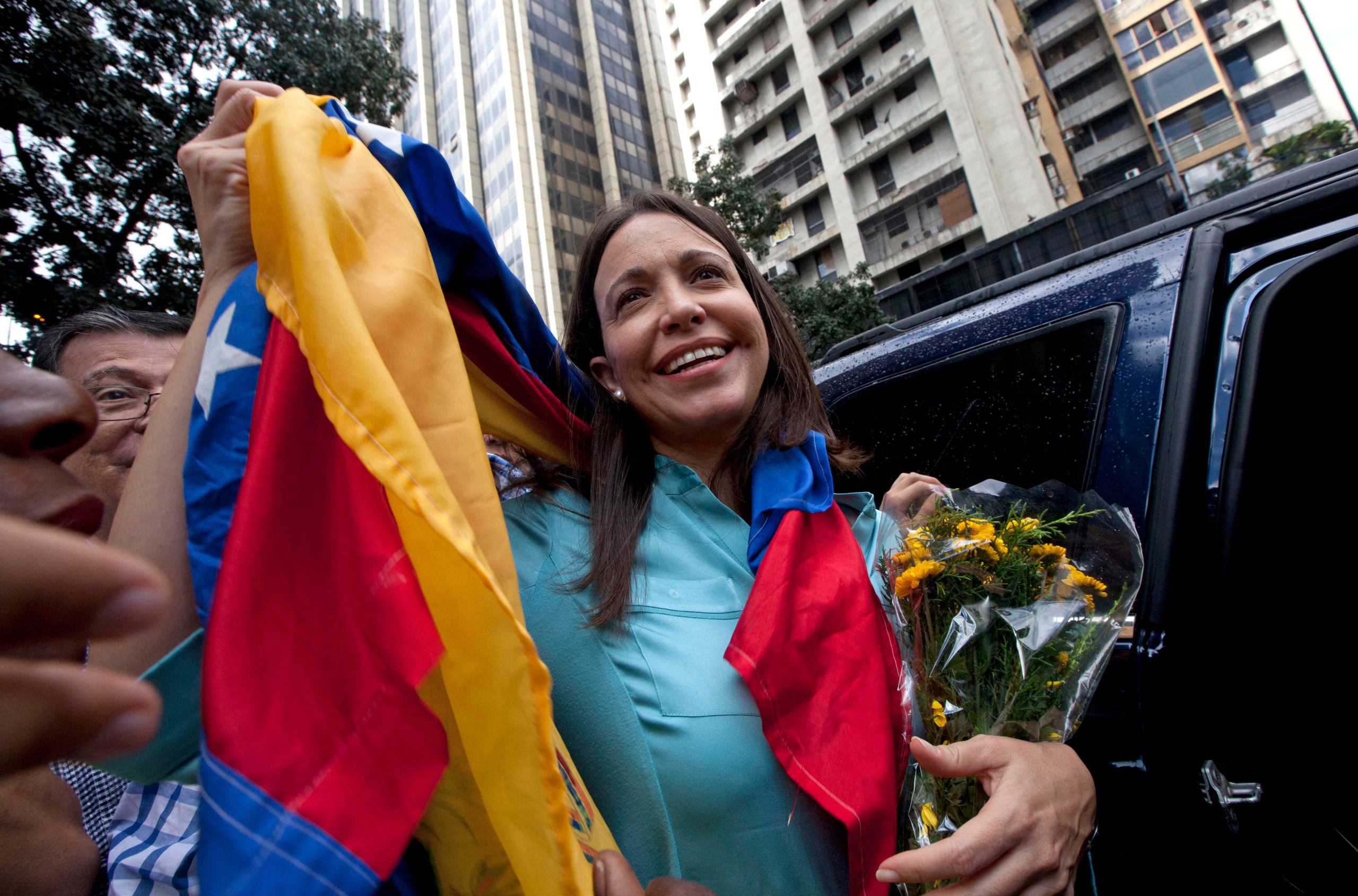President Donald Trump is not the only person to be disappointed by the choice of this year’s Nobel Peace Prize laureate.
The Nobel Peace Prize is always political because peace is a political business, writes International Editor Lindsey Hilsum.
President Donald Trump is not the only person to be disappointed by the choice of this year’s Nobel Peace Prize laureate.
He thought he should have won, but I had hoped that another nominee, Sudan’s Emergency Response Rooms (ERRs), would triumph.
The Nobel Committee, however, disagreed with us both, awarding their prize to Maria Corina Machado, the leader of Venezuela’s opposition, “for her tireless work promoting democratic rights for the people of Venezuela and for her struggle to achieve a just and peaceful transition from dictatorship to democracy.”
As an objective journalist, I am not meant to have a dog in the fight, but my own experience led me to support the ERRs. When I visited Khartoum last month I was impressed.
“History suggests that it will take more than a 20-point proposal to end one of the world’s longest-running conflicts.”
Saad Seraj, a 26-year-old maths graduate, was supervising the daily distribution of lentil soup to 1,600 families left destitute by the two-year long war. Like other educated Sudanese, he could have left the country, but chose to stay to volunteer instead.
“We’re a big group organising with others abroad to reach people who need help. We’re showing society that there is a greater purpose in life,” he said.
The ERRs have their roots in the traditional Sudanese concept of nafeer – collective action. When international aid agencies fled the capital at the start of the war, young people like Seraj stepped up, raising money from the Sudanese diaspora and local businesses to help their fellow Sudanese to survive.
With humanitarian aid budgets in decline across the western world, the ERR idea of mutual aid – which has helped an estimated three million Sudanese with food, shelter and medical assistance – might be a model for other conflicts in the future.
After hearing that Machado had won, the White House accused the Nobel Committee of placing “politics over peace.”


Of course, the prize is always political because peace is a political business. The government of President Nicolas Maduro in Venezuela rules by fiat and fear. Last time I was in Caracas, we had to sneak up to the barrios, the hillside shanties, to film undercover young people who had been beaten up by regime thugs.
Machado, who is in hiding, is undoubtedly brave and principled, risking her life to challenge a brutal system.
“The prize is always political because peace is a political business.”
Ironically, President Trump is also in favour of regime change in Venezuela, calling Maduro a “narco-terrorist”, and recently ordering deadly strikes on several alleged drug smuggling boats off the Venezuelan coast.
President Trump, who claims, dubiously, to have brought about an end to seven wars, may hope that his current intervention in the Middle East will make him a contender in 2026.
If his peace plan doesn’t just rescue Israeli hostages, stop Israel’s devastating attacks on Gaza and allow humanitarian aid in, but leads to a genuine long-term agreement between Israel and the Palestinians, well, he would deserve it.
But we are a long way from there, and history suggests that it will take more than a 20-point proposal to end one of the world’s longest-running conflicts.
In his 1670 Theologico-Political Treatise, the philosopher Baruch Spinoza wrote: “Peace is not just an absence of war, it is a virtue, a state of mind, a disposition for benevolence, confidence, justice.”
Or as Duaa Tariq, a 32-year-old Sudanese artist and one of the founders of the ERRs, said to me: “The problem is the normalisation of violence.
“We need to reject this and go back to the very root of being human, which is to value other people, even if they’re your enemy.”
Read more:
Israel Gaza ceasefire: Can Trump’s deal bring real peace?
Trump to travel to Middle East after peace plan announced
Israel and Hamas agree to first phase of Trump’s Gaza peace deal